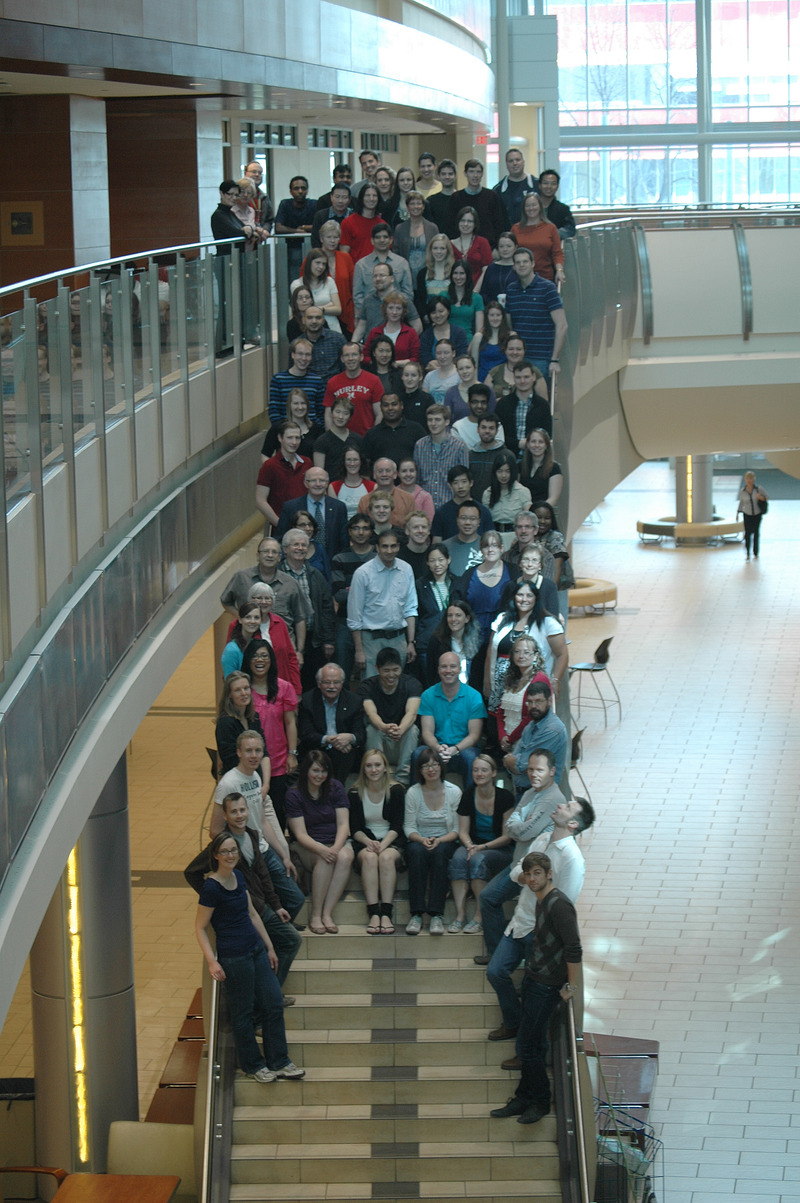About Us
Department of Medical Microbiology & Immunology
The Department of Medical Microbiology & Immunology (MMI) was formed in 1995 by the merger of the Department of Medical Microbiology and Infectious Diseases and the Department of Immunology. The merger recognized the natural link between infectious diseases (offence) and host immunity (defence) as two sides of the same coin, and it positioned our department to become a leader in the growing research field of pathogen-host relationships.
Research
Based on the roots of the Department of Immunology, MMI has evolved into a research-focused environment with core interests in advanced research and training at the graduate level. Many of our faculty are externally funded, allowing them to devote much of their time to research. More details can be found on the individual web pages of our faculty members and the ImmuNet and Li Ka Shing Institute of Virology web sites.
Our department is integrated into the health research and basic sciences communities on campus by sharing research facilities, teaching, and seminar series. Moreover, cross-appointed faculty from other basic science departments (eg. Agriculture, Biochemistry, Biological Sciences, and Cell Biology) and from clinical divisions or departments (eg. Endocrinology, Gastroenterology, Lab Medicine and Pathology, Nephrology, Neurology, Oncology, Pediatrics, and Pulmonary Medicine) foster fruitful cross-disciplinary interactions that enrich our research and graduate training programs.
Graduate training
As a research-intensive department our main training focus is on graduate studies offering both Master of Science (MSc) and Doctor of Philosophy (PhD) thesis-based degrees. Our program creates broad competence in all aspects needed for becoming a strong researcher: from experimental design, execution and interpretation, to critical evaluation of the literature and effective communication of science in the form of publications, grants, and seminars.
Beyond hands-on research and course work, students can also broaden their skills in teaching and management. For instance, there is a student representative on all our departmental committees, which provides valuable behind-the-scenes insight into how research, training, recruitment, etc, is managed. Students can also participate in the annual ImmuNet Research Day, which is a full day off-campus research extravaganza organized entirely by and for students. For students interested in enhancing their teaching skills, the Graduate Teaching and Learning Program (GTLP) is an effective way to build confidence and experience, that benefits students whether they wish to become teachers or not. Finally, to provide focus for the future, the department hosts career talks each year to showcase the diverse set of career choices that are available to our graduates.
Undergraduate training
MMI does not offer undergraduate degrees, but in collaboration with the Department of Biological Sciences we created the immunity and infection (IMIN) undergraduate major. Undergraduates in Biological Sciences who take this major are exposed to a broad range of courses to deepen their understanding of immunity in general as well as the mechanisms used by pathogens to avoid the innate and adaptive arms of the immune system.
The People Behind MMI
 All the buildings and instruments can't make for a successful research and learning environment without a group of dedicated and motived people to convert ideas into knowledge. From our friendly and competent office staff who greet visitors and help run the department, to the support staff, researchers and students who make our research happen, MMI is ultimately about people. To balance work with some fun the staff and, in particular, the students, regularly come up with diversions. At MMI we want to be leaders in research but that doesn't preclude having some fun along the way.
All the buildings and instruments can't make for a successful research and learning environment without a group of dedicated and motived people to convert ideas into knowledge. From our friendly and competent office staff who greet visitors and help run the department, to the support staff, researchers and students who make our research happen, MMI is ultimately about people. To balance work with some fun the staff and, in particular, the students, regularly come up with diversions. At MMI we want to be leaders in research but that doesn't preclude having some fun along the way.